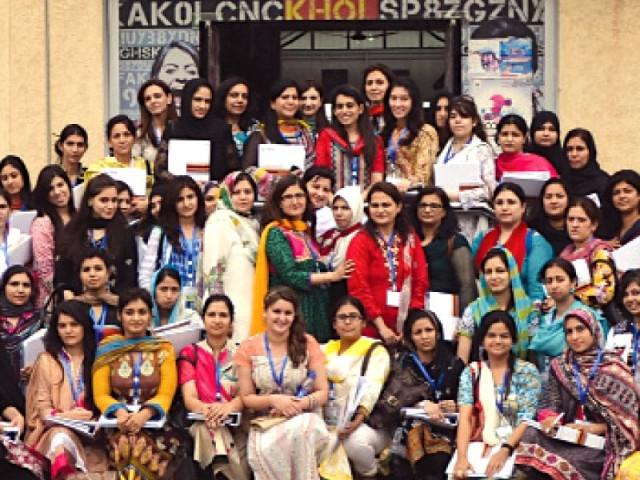Agripreneur successfully trains 1,000 women
Consortium effort equips women in rural regions with skills for sustainable livelihoods

Give a man a fish and you feed him for a day. Teach a man to fish and you feed him for a lifetime. A consortium comprising a leading foreign bank, a foreign trust, and two local organisations has trained approximately 1,000 women over the past four years, striving to empower them to earn their livelihoods under the project called Agripreneur.
They embarked on an extensive exercise to identify women willing to participate in the months-long training programme from rural and peri-urban regions of Sindh and Punjab, including Pindi, Taxila, and Islamabad.
The programme educated them on drying vegetables using solar machines to increase the shelf life of products without adding preservatives and other chemicals, packaging them attractively, and selling them in the market to earn a living.
Moreover, many women were taught basic accounting to manage their enterprises and opened bank accounts. Initially, the earnings of these young entrepreneurs are modest on average.
Speaking to The Express Tribune, Bilquis Tahira, Executive Director at Shirakat, stated that while they have trained the women, the agripreneurs are yet to scale up their businesses to achieve true commercial success and generate enough income to cover most expenses from their vegetable drying businesses.
She mentioned that initially, around 120 business interest groups were formed. Seventy-two of them have managed to expand their businesses by finding markets for their products nearby. Each group comprises five members, mostly consisting of four women and one man. Group leaders were elected through democratic voting.
In the year 2020, the Standard Chartered Foundation made a donation to The British Asian Trust (BAT) to support the implementation of the Agripreneur project. It was part of Futuremakers by Standard Chartered, a global initiative to tackle inequality by promoting economic inclusion for disadvantaged young people, including those affected by the Covid-19 pandemic.
The local implementing partners were the Sindh Agriculture & Forestry Workers Organisation (SAFWCO) and the NGO Shirakat.
They provided each group with a solar dryer machine and trained them, as the process for drying each vegetable varies.
Tahira further explained that initially, her NGO marketed the agripreneurs’ products. Later, the entrepreneurs were trained to find markets themselves.
She remains optimistic that many of them will scale up their businesses to a commercial level, considering that hundreds of thousands of women from similar marginalised societies in India and Nepal have successfully commercialised their work and are earning substantial incomes.
Speaking at the closing event, Chief Executive Officer at Standard Chartered Pakistan, Rehan Shaikh, expressed excitement about concluding the programme as part of the wider Futuremakers initiative to empower the next generation to learn, earn, and grow. The project has developed a sustainable pathway for women and youth out of poverty by addressing key barriers to progress, he said.
“The programme will positively impact thousands of people and will have ancillary economic gains for the communities,” said Shaikh.
Published in The Express Tribune, April 28th, 2024.
Like Business on Facebook, follow @TribuneBiz on Twitter to stay informed and join in the conversation.



















COMMENTS
Comments are moderated and generally will be posted if they are on-topic and not abusive.
For more information, please see our Comments FAQ